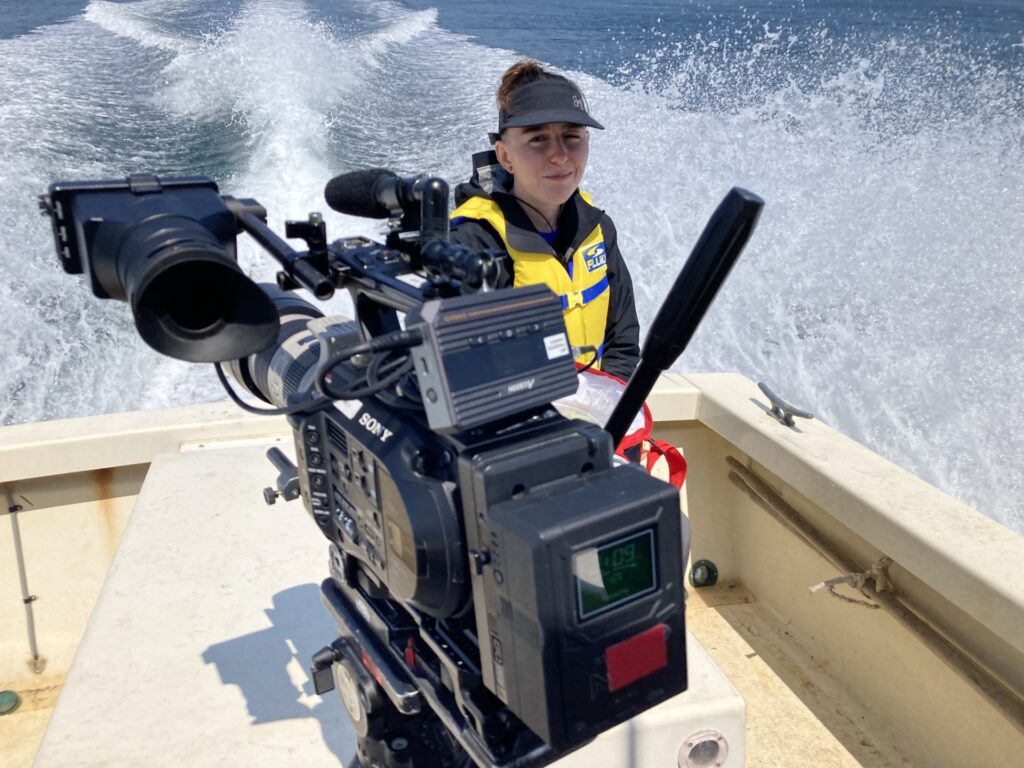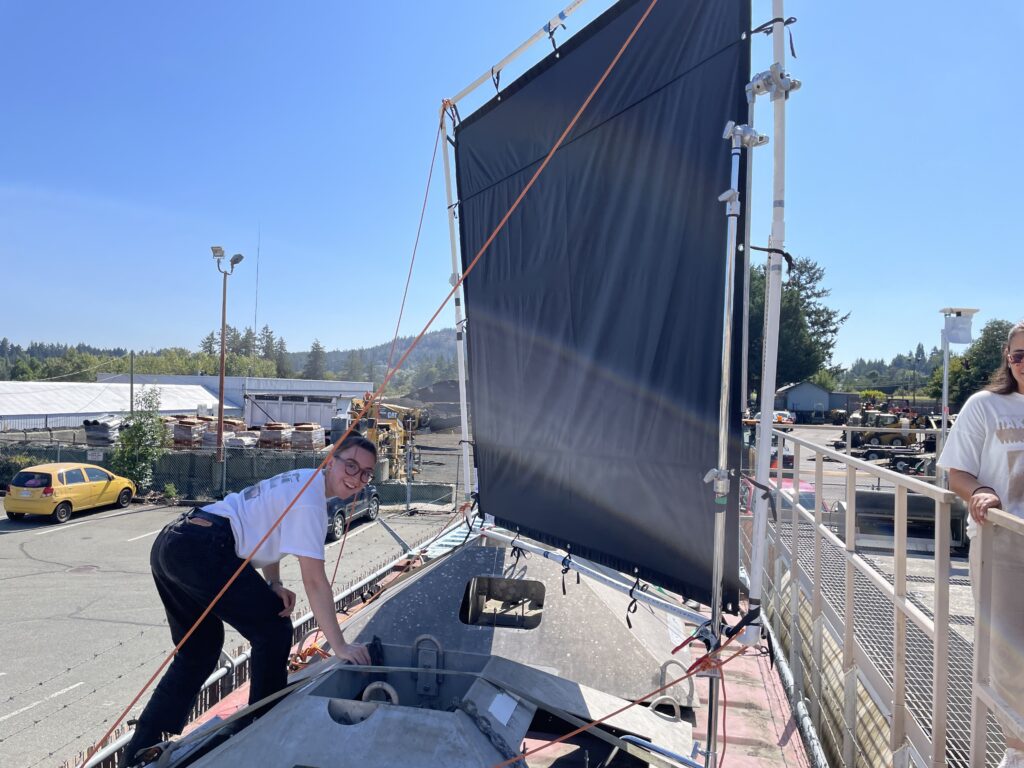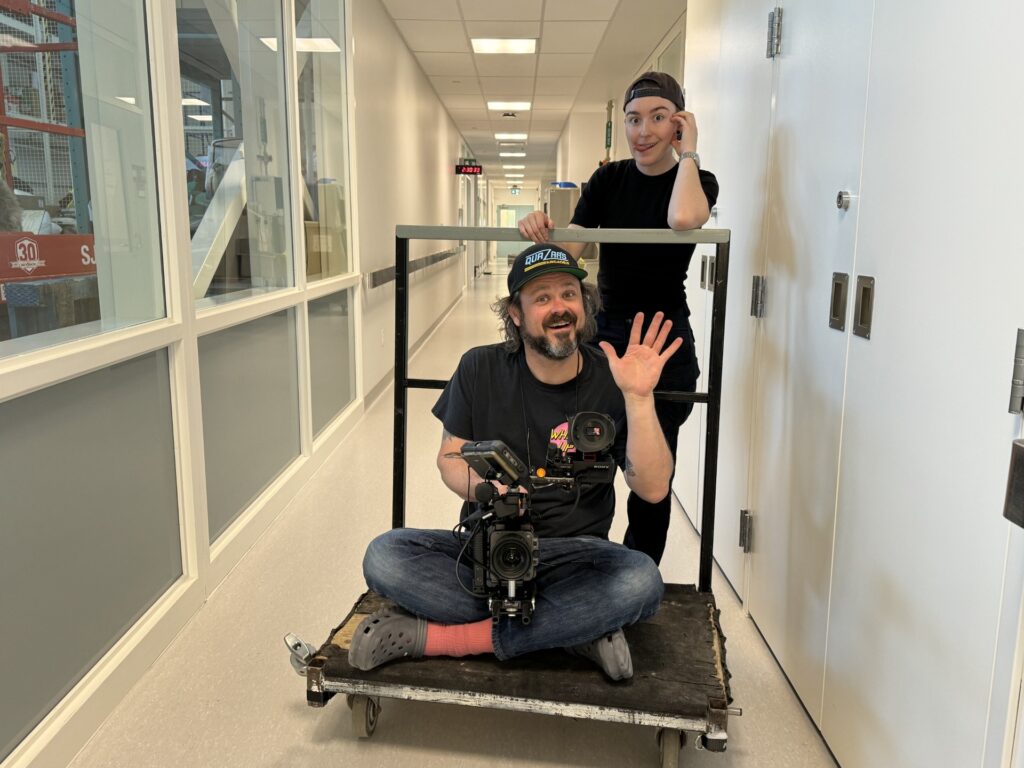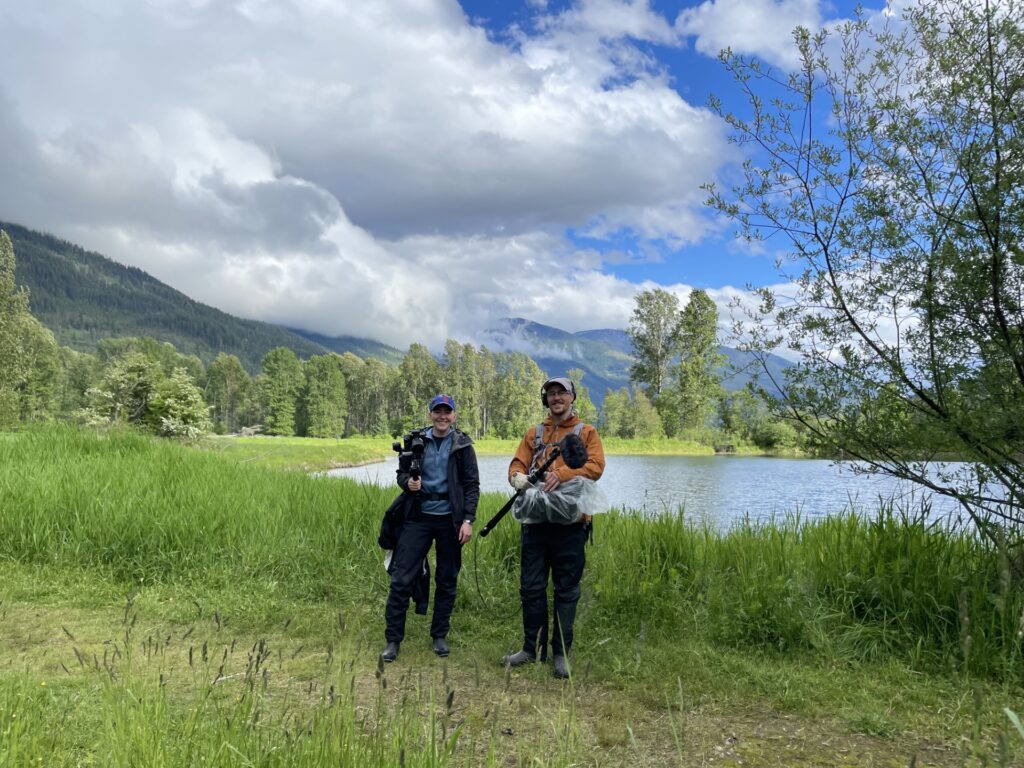
Tatianna Balcaen is French-Canadian and was born and raised in southern Manitoba. She has an Anthropology degree from the University of Manitoba and loves creating art and playing piano.
When and how did you start in the media production industry?
My first opportunity to work in the film industry came about at the age of 14 years old, when I was hired on as a PA for a documentary about the CMHR. It really opened up a world of creative and technical teamwork that fuelled my love for this industry and the people involved. I worked in the tourism and historical sector for several years and then joined the film industry again full time in 2022.
What area of the film industry do you work in now and why?
I work primarily in the grip department, but I have also worked in the electric and camera departments on non-union projects. I really enjoy the physicality of grip work; it keeps me active and moving. What I love most about grip work is that although most of our tools are basic, we can harness the physics of movement and light to support the craft and capture of a visual moment. To me, that is really special.

If you could give yourself advice today to yourself in the past, what would it be?
I would tell myself to live in the moment. Film has given me the opportunity to visit so many wild and wonderful places. It’s easy to stay focused on the job in front of me, but I think it’s important to look around now and then and recognize the privilege that this industry provides.
What advice would you give to someone starting off in the media production industry?
Show up early with a go-getter attitude. The industry is fast-paced and changes all the time. You never know who your next boss is going to be, and most work opportunities stem from networking and word of mouth. Always lend a helping hand and look out for other people on the crew. The energy of a happy and healthy crew translates to the screen, so anything you can do to support that is valuable.

Why is learning and training important?
You will often hear that learning is best done on the job, and it’s true that nothing compares to experience. However, I think it’s important to have a safe and stress-free space to ask questions and try out equipment, so we feel more prepared when “go time” comes around. It is also a great networking opportunity to meet people from different crews or different cities.
Is there something about you or an interesting past experience that you’d like to share with your colleagues?
The most exciting film shoot I’ve been on was a documentary series about the interconnected fauna. I got to travel across Canada with an amazing team of film professionals and follow biologists around as they did their work. We got to learn about salmon and lobsters in New Brunswick, arctic char in Nunavut, bats in Nelson BC and follow archeologists around on a field research project about prehistoric residences on the Churchill Peninsula. It was an incredible experience! We were only six people on the crew, which is really cool because it creates an environment where creative problem solving and teamwork are essential. From tropical storms to the frozen tundra we really pulled together as a team to create the final project. I will forever have a connection with those teammates and made unforgettable memories.

Is there someone within the film industry you would like to work with and why?
I would love to work with Sanjay Sami (he frequently works as a dolly grip with Wes Anderson) because he has concocted some pretty epic dolly set-ups. Camera movement interests me, so working with an innovator and forward thinker such as Sanjay would be really inspiring. On top of that, I am a huge fan of the depth of stories, character development, colours, lighting choices and symmetrical framing of Wes Anderson films.
Where do you see yourself ten years from now?
This is a very difficult question to answer because I believe that having such long term goals sometimes creates too much of a tunnel vision for me and then I miss out on current opportunities simply because they don’t align with a long term idea that might change anyways. So for now let me say, I am exploring leadership roles within my department as well as deepening my knowledge of camera movement. In ten years I hope I will have learned lots of new things and meet more people who have pushed me to think outside the box.

FTM is a non-for-profit charity and member of the Province of Manitoba’s Sector Council program funded through the Economic Development, Investment, Trade and Natural Resources. FTM builds a highly skilled and adaptable film industry workforce to support the activities of Manitoba production companies. FTM collaborates and partners with members of the film industry to identify training needs to support workforce development.
